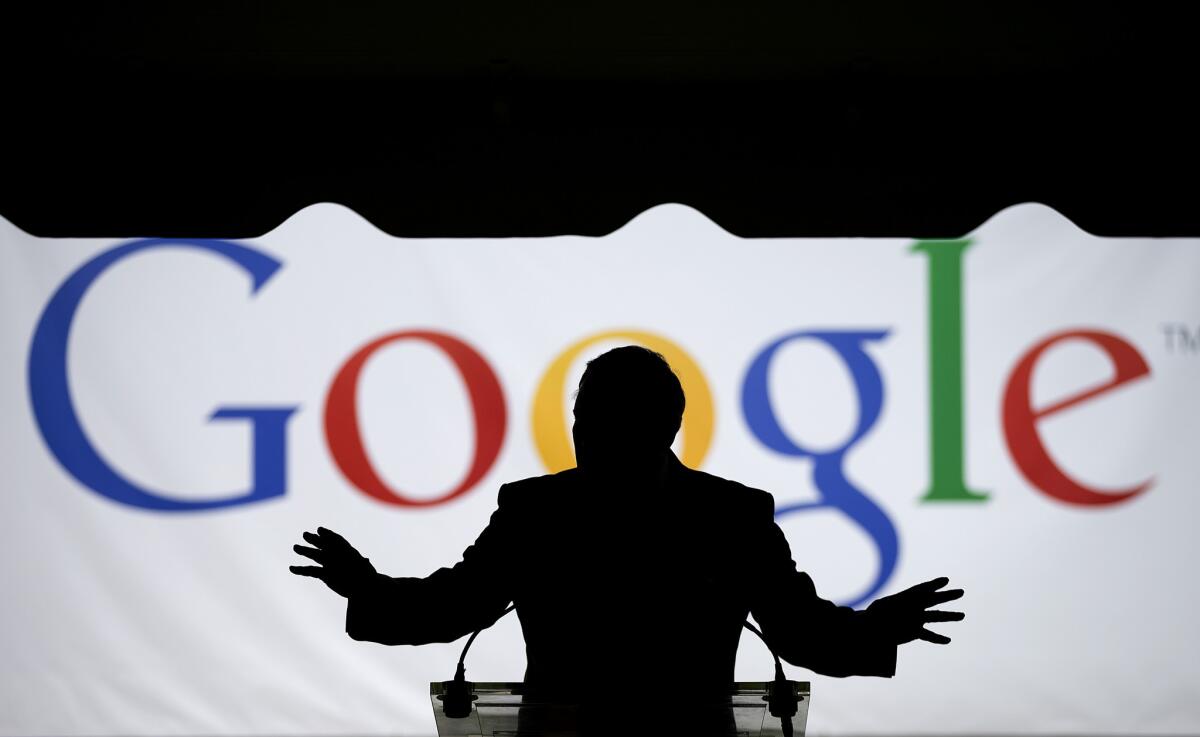Editorial: Do Americans deserve a ‘right to be forgotten’ rule from Google?

Georgia Gov. Nathan Deal speaks during a ceremony announcing a $300 million expansion of Google’s data center operations, June 2, 2015, in Lithia Springs, Ga.
A year after the European Court of Justice ordered Google to remove links to outdated personal information from its search results in Europe on request, one of the company’s fiercest critics has asked the Federal Trade Commission to make Google recognize a “right to be forgotten” in the United States as well. Consumer Watchdog, a Santa Monica-based advocacy group, argues that people ought to be able foil searches for information about them that is “outdated, inaccurate or irrelevant.”
But for better or worse, the Internet has become the historical record, and search engines are its indispensible catalog. Google and other search engine operators shouldn’t be required to use their power to edit that record.
Some of the best features of the Internet — the vast amount of information it makes available, its openness, its ability to connect users around the globe — are also the ones that conflict most sharply with individual privacy. Once posted online, words and images can be duplicated so rapidly and preserved so cheaply that they become nearly impossible to erase. For example, Consumer Watchdog points to the set of gut-churning California Highway Patrol photos of the car wreck that claimed the life of 18-year-old Nikki Catsouras in 2006, which proliferated online despite her family’s efforts to remove them. They’re still easy to find with a quick Google search.
Google says it removes from its index certain types of information that shouldn’t have been posted in the first place, rendering it all but invisible online. This includes credit-card numbers and images of signatures. Last month Google announced that it would start granting requests from victims of “revenge porn” to remove those images too. The leaked photos of the Catsouras crash scene may belong in the never-should-have-been-posted category as well. But Consumer Watchdog wants the FTC to go even further and declare it an unfair and misleading trade practice for the search company not to give Internet users in America the same ability that those in Europe have to erase links associated with their names.
Requiring companies to do something in the United States because they have to do it in Europe would set an ugly precedent that fails to recognize the continents’ different legal and cultural traditions. More important, though, the European “right to be forgotten” is bad policy. It puts Google in the position to judge when truthful information that’s been lawfully published and shared online is no longer relevant to the public. But what strikes Google as irrelevant might not be so inconsequential to a historian, a potential business partner, an investor or a fiancee. And there’s precious little difference between removing the links to an item and making it disappear. To use a pre-Internet analogy, it’s as if someone embarassed by a nonfiction book could order librarians to remove that title from the card catalog.
The issue is a challenging one, but turning search engines into incomplete guides to the historical record is a bad idea.
Follow the Opinion section on Twitter @latimesopinion and Facebook
More to Read
A cure for the common opinion
Get thought-provoking perspectives with our weekly newsletter.
You may occasionally receive promotional content from the Los Angeles Times.






